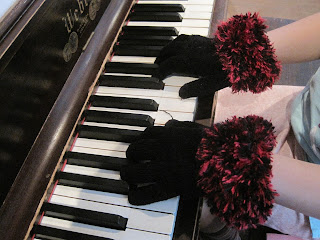Practice Tips: Embrace Your Mistakes?
Hi, all
Today's post is more of a challenge than a tip. Think of it as a science experiment. You get to take a hypothesis running out there, and prove whether or not it works. (But it might take time to prove, so don't just try it tomorrow and go, "That didn't work." The idea is to try it long-term and see.)
Years ago, my teacher (Mr. F) gave me a couple of documents on different ideas for practicing. Actually, one was an entire article all by itself. The gist of the article was that, rather than always "fixing" our mistakes, it may be beneficial in some cases to repeat the mistake, on purpose. Then, after that, you aim to play it correctly. It used studies from long jumping to make its point.
Recently, I came across this idea again in The Bulletproof Musician's email newsletter. Which made me start to think about it more seriously -- especially since, in this case, the quoted study was not the same long jump study, but one on baseball. Noa Kageyama writes, "It seems that intentionally doing things wrong provides us with a lot more information about how to do things correctly, than limiting ourselves to exploring a very narrow range of what we can do with our instruments."
So, here's the how-to, the experiment directives:
This month, when you practice, take something that's giving you particular difficulty. Maybe it's creating the perfect, "popping" staccato touch. Or it's *meaningful glance at several particular students* your scale fingering. Maybe you just have a passage where you tend to hit the wrong notes. Take that passage, and instead of practicing for perfection, practice as many different "wrong ways" to do it as you can think of. Over-correct on your notes. "Slide" to a high note instead of "jumping," or deliberately "jump" too far or not far enough. Turn the staccatos into almost-legatos. Try different, bizarre fingerings for your scales. (One cautionary note: don't hurt your hands while practicing. If, in the course of your experimenting, something hurts you, make a mental or even a written note not to try that again! Also, in your experimenting, don't do the same wrong thing so often that it becomes a bad habit.) And then, once you've experimented, try again to play that section correctly.
See what happens when you choose to embrace your mistakes and explore your options. And let me know how it goes!




Comments
Post a Comment